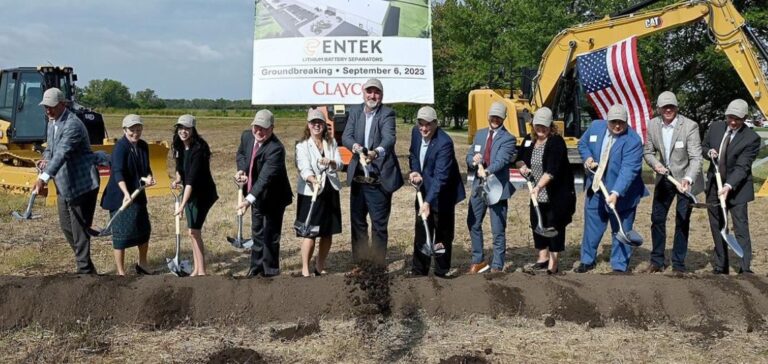The U.S. Department of Energy (DOE) has announced a conditional $1.2 billion loan to ENTEK Lithium Separators LLC. The funding is for the construction of a plant in Terre Haute, Indiana, to manufacture lithium-ion battery separators, mainly used in electric vehicles (EVs). Battery separators play a crucial role in the performance and safety of lithium-ion batteries, separating the electrodes while allowing lithium ions to pass through.
This initiative is part of the DOE‘s Advanced Technology Vehicles Manufacturing Loan Program, which has direct lending authority of $40 billion. The project is expected to support the production of batteries for around 1.9 million medium-sized electric vehicles or 1.3 million electric SUVs. At the same time, the White House has introduced tax measures to give maximum support to the electric vehicle industry in the USA.
Economic and industrial impact
Construction of the new plant is expected to generate over 760 construction jobs and 635 long-term operational jobs. ENTEK claims that the separators produced at this plant will be compatible with all existing lithium-ion battery chemistries for EVs. This broad compatibility is essential to meet the diverse needs of battery cell manufacturers.
The new regulatory requirements imposed on automakers to benefit from the $7,500 EV tax credits have changed the dynamics of the supply chain. Since January 1, Chinese content in batteries eligible for these credits has been restricted, reducing the number of eligible vehicles. Automakers have had to adjust their supply chains to restore the eligibility of many vehicles.
Future projections and challenges
The DOE estimates that by 2030, the North American EV lithium-ion battery industry will require annual separator production of between 7 and 10 billion square meters. These projections underline the strategic importance of the ENTEK project for the battery industry and the energy transition in the United States.
However, the finalization of the loan remains uncertain. DOE has not yet set a specific date for the conclusion of this financing. This situation is reminiscent of the $9.2 billion loan announced in June 2023 for Ford Motor and SK On’s Blue Oval SK joint venture, which has still not closed.
Perspective and analysis
The conditional loan to ENTEK is part of a broader U.S. government strategy to strengthen domestic production capacity for critical EV components. The aim is to reduce dependence on imports, particularly from China, and secure supplies of essential components to support the growth of the EV industry.
This initiative could also stimulate innovation in battery design and manufacture, by encouraging manufacturers to develop more efficient and safer solutions. The success of this project could serve as a model for other investments in battery technologies and the energy transition.
The ENTEK project represents a significant breakthrough for the US battery industry, with major potential implications for the EV supply chain and the energy transition. It will remain crucial to monitor the finalization of this loan and the evolution of the project to assess its real impact on the market.






















